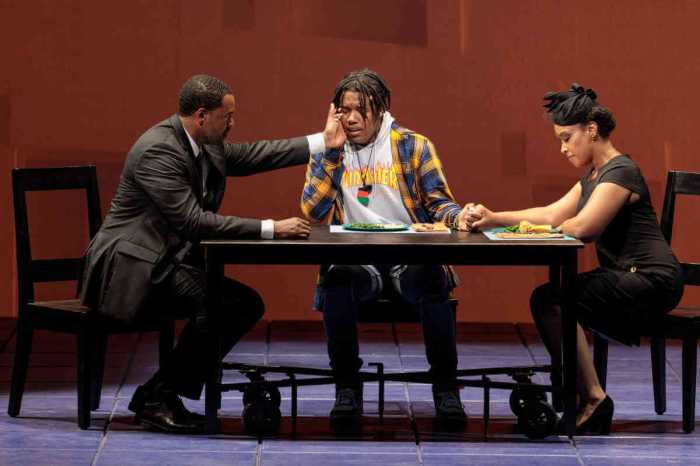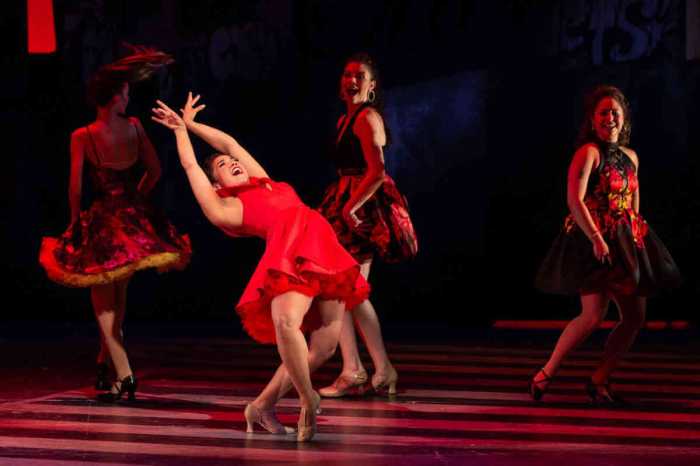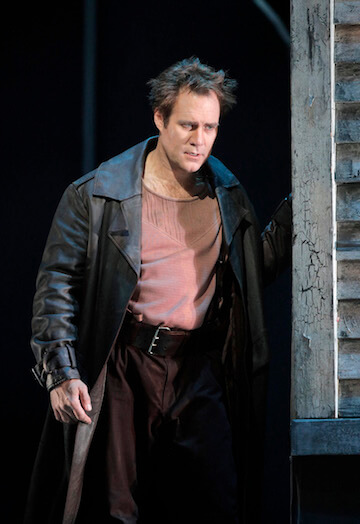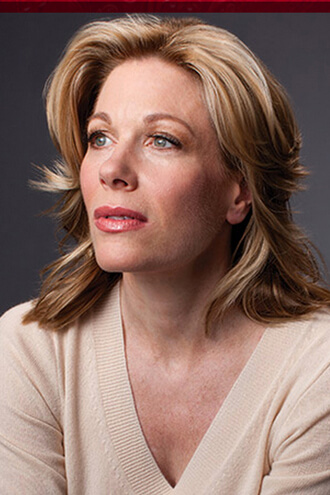Kelly Markgraf and Sasha Cooke sing the parts of Hannah before and Hannah after in Laura Kaminsky’s “As One,” with libretto by Kimberly Reed and Mark Campbell. | LYNN LANE
BY DAVID SHENGOLD | American Opera Projects, a leading force in the gestation and development of important new work for the lyric stage, presents the world première performances of “As One,” which explores and celebrates the journey of a male-to-female transperson, September 4-7 at the Brooklyn Academy of Music.
New York-born out lesbian composer Laura Kaminsky, who concurrently becomes AOP’s composer-in-residence, wrote the chamber score to a piquant libretto by trans filmmaker Kimberly Reed and gay librettist Mark Campbell.
Reed’s acclaimed 2010 documentary film “Prodigal Sons” documents her return home to Montana for her high school reunion. It won accolades at major LGBTQ festivals and on critical “Best of Year” lists. Reed happily recalled Gary M. Kramer’s glowing review in these pages: “‘Prodigal Sons’ takes viewers on an intense emotional journey, but a rewarding one nonetheless… riveting.”
BAM presents world première of Laura Kaminsky’s transgender-themed chamber opera
In 2011, composer Kaminsky — whose work revolves around social and political questions — saw “Prodigal Sons” and was struck by its possibilities. She approached Reed and won her approval. Campbell is a much in-demand librettist whose moving, audience-pleasing collaboration “Silent Night” with Kevin Puts won the 2012 Pulitzer Prize for Music. “As One” utilizes an onstage string quartet. The protagonist is taken by two singers, designated as “Hannah before” (baritone) and “Hannah after” (mezzo-soprano).
The 15 songs Reed and Campbell have crafted — a mix of well-observed constraint, pain, and humor — divide into three temporal and spatial zones along the road to self-knowledge and self-acceptance: Hannah in her home town, at college, and in Norway as an adult. The singer goes from paperboy to secret cross-dresser to jock hero to questioning college student, slowly moving into the trans world and its experiences.
In an email message, Campbell said, “I was brought in to create a story. I started asking Kim about her experiences as a transgender person and each story she told seemed eminently suited for transformation into song. I proposed that we create the libretto based on her experiences and combine it with others, as well as statements we want to focus on — and everyone agreed on that approach. My contribution was mostly in taking text and turning it into something to be sung. Kim is an incredible dramatist and storyteller; it was a joy crafting the structure of this work with her. We never disagreed.
The resulting work has been described as a “monodrama for two voices.” Rising opera stars Sasha Cooke and Kelly Markgraf, a glamorous pair who happen to be married, supply those voices at BAM (with Blythe Gaissert and Christopher Herbert, who workshopped the piece, covering).
A concert artist commanding wide-ranging styles, Cooke’s plum Met Opera assignment has been a sensational turn as Kitty Oppenheimer in John Adams’ “Doctor Atomic.” Markgraf’s fine voice and looks — as the two-timed Masetto — outstripped the supposed Don Juan at City Opera’s final “Don Giovanni.”
“Sasha and Kelly are tremendous performers,” Campbell noted.
The highly accomplished Ken Cazan, adept at launching new work like Lowell Liebermann’s 2006 opera “Miss Lonelyhearts” at Juilliard, directs. The Utah-based Fry Street Quartet takes part in the staging, with Kaminsky’s part for violist Russell Fallstad to some extent tracking Hannah. Steven Osgood — AOP’s artistic director from 2001 to 2008 who premièred of Paula Kimper’s fondly recalled lesbian-themed opera “Patience and Sarah” in 1998 — conducts.
The performance schedule includes two free panel discussions: “Creating As One,” with the artistic team, on September 4, and “Gender Identity in ‘As One,’” moderated by Jean Malpas, director of the Gender and Family Project at the Ackerman Institute for the Family, on September 7.
“As One” — with its dynamic, gifted team of participants — may well transform audience members’ ideas about what constitutes an “opera.”
“It has been a tremendous privilege to collaborate on this work,” said co-librettist Campbell. “I’ve been rather ignorant about transgender people, even as a gay man; what I’ve learned from Kim — about her courage and her humanity — will stay with me forever. I hope the audience feels the same.”
The words “It all just feels so right” recur as a motif in the first song, seeming to point the way forward through Hannah’s whole voyage toward self-acceptance, toward being “as one.” Explained Campbell, “What Kim and Laura and I wanted to say is that the journey of a transgender person is no different than that of anyone seeking happiness. Societal pressures make it a challenge, of course; but it ultimately comes down to listening to your heart — a universal theme.”
AS ONE | Music by Laura Kaminsky | Libretto by Kimberly Reed & Mark Campbell | Brooklyn Academy of Music | Fishman Space, Fisher Building, 321 Ashland Pl., btwn. Lafayette Ave. & Hanson Pl. | Sep. 4 & 6 at 7:30 p.m.; Sep. 7 at 3 p.m. | $25 at BAM.org/AsOne or 718-636-4100
David Shengold (shengold@yahoo.com) writes about opera for many venues.



































